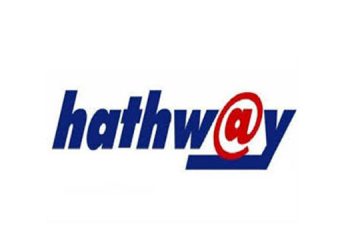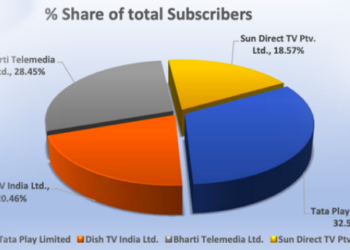Mumbai: The Maharashtra Cable Operators Federation (MCOF) has suggested a revenue-sharing formula for Multi System Operators (MSOs) and cable operators (LMOs – last mile owners) to work together in sharing revenue and consumer billing in Mumbai.
Discussions have been held between MCOF and Hathway Cable & Datacom.
The proposed revenue share formala takes into account operational expenses (OPEX) and the capital expenditure (CAPEX) of both the MSOs and MSOs.
MCOF president Arvind Prabhoo says the proposed revenue sharing structure was as follows, the MSO: LMO share for free to air (FTA) channels should be 37 per cent : 63 per cent. For basic pay packages, the price range of which is Rs 150-Rs 250 (excluding taxes), the proposed revenue share is 45 per cent : 55 per cent; for advanced pay channels, which are in the price range of more than Rs 250, the revenue share proposed is 50 per cent : 50 per cent. For special/VOD packages, it is 75 per cent : 25 per cent and for HD channel packages it is 60 per cent: 40 per cent.
MCOF will act as the collection management and settlement entity.
The MCOF model assumes that every MSO has two systems in place: the subscriber management system (SMS), which hosts the entire subscriber details and is the basis of value chain reconciliation and audit, and Financial Accounting System (FAS).
It is proposed that the MSO use this to generate end-customer bills with full details, taking into account the LMO income share and taxes at various levels. These bills would be raised in the name of the LMO network and carry the tagline powered by the MSO.
The billing details will be pulled by MCOF and placed on the cloud and each LMO would gain access via the worldwide web using a mobile device or through a desktop. The collection data would be captured in real time using MCOF-approved technology, which is currently UPASS and updated on the MCOF cloud in real time and at the MSO-end either in real time or on an end of day basis.
Prabhu points out that the LMO has certain base expenses to cover like staff, office rent, repairs and replacements of shared infrastructure, audit and tax returns.
Prabhoo adds that while the MSO is a wholesaler and LMO the retailer, the equal share formula mooted by the Telecom Regulatory Authority of India (TRAI) must be corrected and replaced by equitable sharing.
The collection cost currently is entirely on the LMO while a good part of the monies flows to MSOs. This, according to MCOF needs to be allocated in the revenue share formula, if not actually computed and reimbursed.
MCOF, in the email to MSOs, has also mooted that carriage fees be clubbed with customer revenues, being a mathematical product of STBs in place and carriage fee per STB.
MCOF has agreed that the UPASS technology, devices and connectivity costs will be borne by the LMOs. Also while integration, payment gateway, electronic processing and settlement system costs are incurred by the MSOs for direct connections or internet services, for any additional integration, the cost can be shared with the LMOs on a pro-rata basis.
The LMOs are also suggesting carriage fee sharing as a loyalty bonus, Prabhu said adding this could be mutually worked out.
The new system will enable the MSO to monitor the precise collections made each month by the LMO and also the revenue due to the MSO, excluding taxes. While revenue will be booked in both books as per packages, the LMO will pay the MSO per month for all the collections made during the previous month after deducting taxes and the LMO share within seven days of the invoice being generated by the MSO.
















